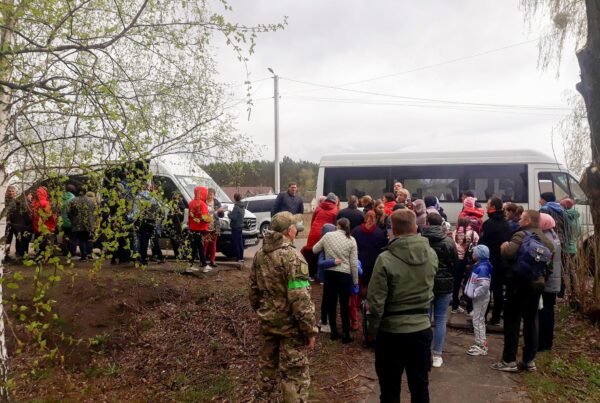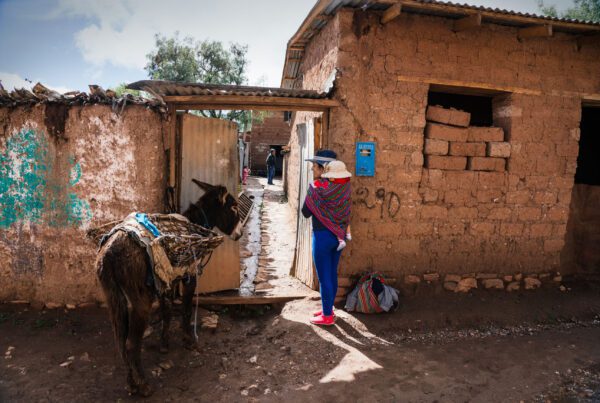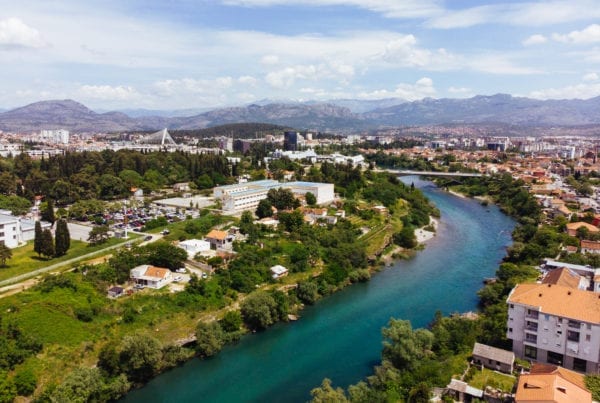By Tanner Peake
I’m on an airplane, returning home to the United States from a trip to the country of Georgia—a neutral location where I was able to meet with partners of our ministry from all countries involved in the war in Ukraine. I’m shaken. All I can think is this: they didn’t choose this, and we have to do more about it.
A painfully simple, often unspoken fact of reality is that we don’t get to choose where we are born. We don’t choose our parents, our family, or the time we arrive in this world.
And yet, our identities are forged by these things. We are knit together in our mother’s womb. We grow in the context of our family and community. The possibilities of our lives are bound by the era in which we live. The seeds of our growth are planted in gardens we didn’t choose. We don’t, in fact, control some of the most basic plot lines of our own stories. Considering this realty is part of the “numbering our days” the scriptures prescribe (Psalm 90:12).
Philosopher James K. A. Smith says it succinctly: “Our selves are fashioned; we are adorned with histories that incline us to saunter, swagger, or shuffle. Given our histories, some of us move through the world with a cape; some of us don baggy sweaters we hide behind; some of us still experience the world as if exposed. The question isn’t whether we have a style but which style we’ve (unconsciously) adopted given our histories. We wear time.”
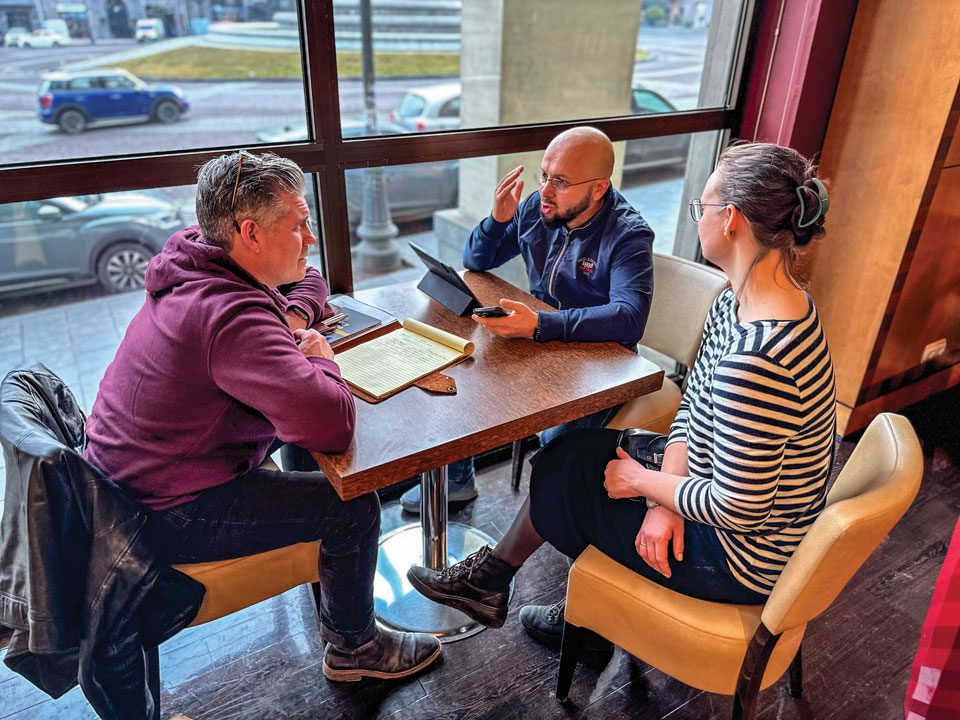
Tanner meets with Every Home partners from all countries involved in the war.
Consider a few examples
Imagine being born into a minority people group living in a dominant culture that is at odds with your own. Imagine lacking simple opportunities to advance within society as a result of the color of your skin or your ethnic heritage.
Or imagine being born with a serious disability. By no choice of your own, you are physically unable to integrate with society. In fact, depending on where you are born, you might not even be granted the right to live.
Or imagine being born in a refugee camp. A slum. On the streets.
Or imagine being born into a war.
The interpretation of your humanity, to a large extent, is defined by the time and place of your birth. We are not all born the same, and so much of who we are is simply inherited.
I’ve long been haunted by this reality. I was born a white male in one of the most affluent societies in human history. I have never touched war, been excluded from society because of my gender, or lacked opportunity because of my religious affiliation. My blue passport has afforded me more privileges than I will ever fully know. I did nothing to earn my own privilege.
It was, in part, this awareness that led me to launch the Oikos initiative across the global ministry of Every Home for Christ in 2019. I knew I had privileged access to opportunities to know the hope and love of Jesus, and I was determined to see everyone else in the world have that same access. I passionately believe that knowing Christ should not be a privilege for the few, but a fundamental right of all humanity. Every person, everywhere, in every generation deserves to know Jesus. The Oikos initiative is our commitment to see that happen in this generation.
But returning from my trip to Georgia, I am struck again by the disparity of the situation. I’m reminded of why Oikos exists.
Today, children are born in Ukraine in dimly lit hospitals into a national storyline of war. They don’t yet know about the long-range missiles their president is begging from the international community. They don’t yet resent the enemies on the other side of the brokenness into which they were born. These innocent children may smell the burning rubble, but they can’t yet see the pillars of smoke filling their skies. By no decision of their own, their lives take root in a cruel soil.
The same innocence lives in newborn babies in hospitals on the other side of an invisible border. In Russia, beautiful children are born to loving parents. They, too, will step into a storyline of war. But they begin without enemies. They begin without prejudice. They begin with no concept of land that is not their own. This, too, is no decision of theirs.
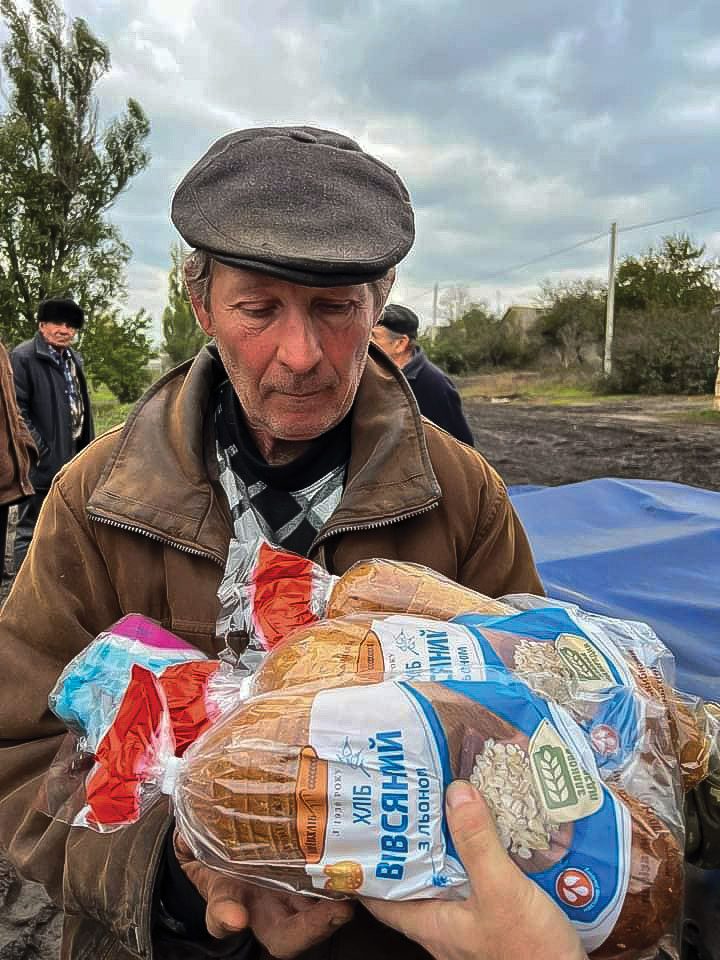
Every Home teams distribute humanitarian aid in Ukraine.
We are all planted
As I reflect on my time with believers from nations at war—leaders I watched embrace with tears in every eye—I am deeply troubled by the way this war violates the innocence of every soul living in these nations. War exploits the uncontrollable facts that surround one’s birth. It co-opts the inherited storylines of time and place and deploys them, maliciously, against neighbors. War leverages the most uncontrollable parts of our identity for savagery.
I think of a ministry partner who came from Russia. He told me how the minority people group from his part of rural Russia were the first to be drafted. They were compelled to leave their homes and kill people they had never met, nor had any reason to be hostile toward. Why? Because, as a minority group, they were out of sight of the national conscience. They were disposable to the Russian government. A whole people group—born into a time and place not of their choosing, and by that fact, sent to war. Where and when they were planted made the entire difference.
And then I think of our ministry partner in Ukraine. He told us of the mass graves. The massacres. The inhumane wrath suffered by entire communities. Why? Because they were born in this place, in this time. They were planted.
The seeds of our growth are planted in gardens we didn't choose.
Everyone in these nations is surrounded by unacceptable savagery. There is a madness that is beyond our control.
And yet, our call as Christians is to stand in the face of this madness and declare a love that is beyond all of it. We insist on the dignity, value, and humanity of every person—regardless of where, when, or to whom they are born—because they are made in the image of God. We commit to carrying Christ to every single one of them.
We, too, are planted in times, places, and circumstances beyond our control. It is up to us to leverage the access and privileges we enjoy to ensure everyone has a chance to know the hope of Jesus. We can only love others from the place we are planted. We can only see from the eyes and heart we are given. But we can choose to carry dignity to those who are near and far. We can choose to offer compassion with the awareness of it all. We can choose to see beyond ourselves to a much bigger world, compelled by the love of Christ for every single soul on this planet.


